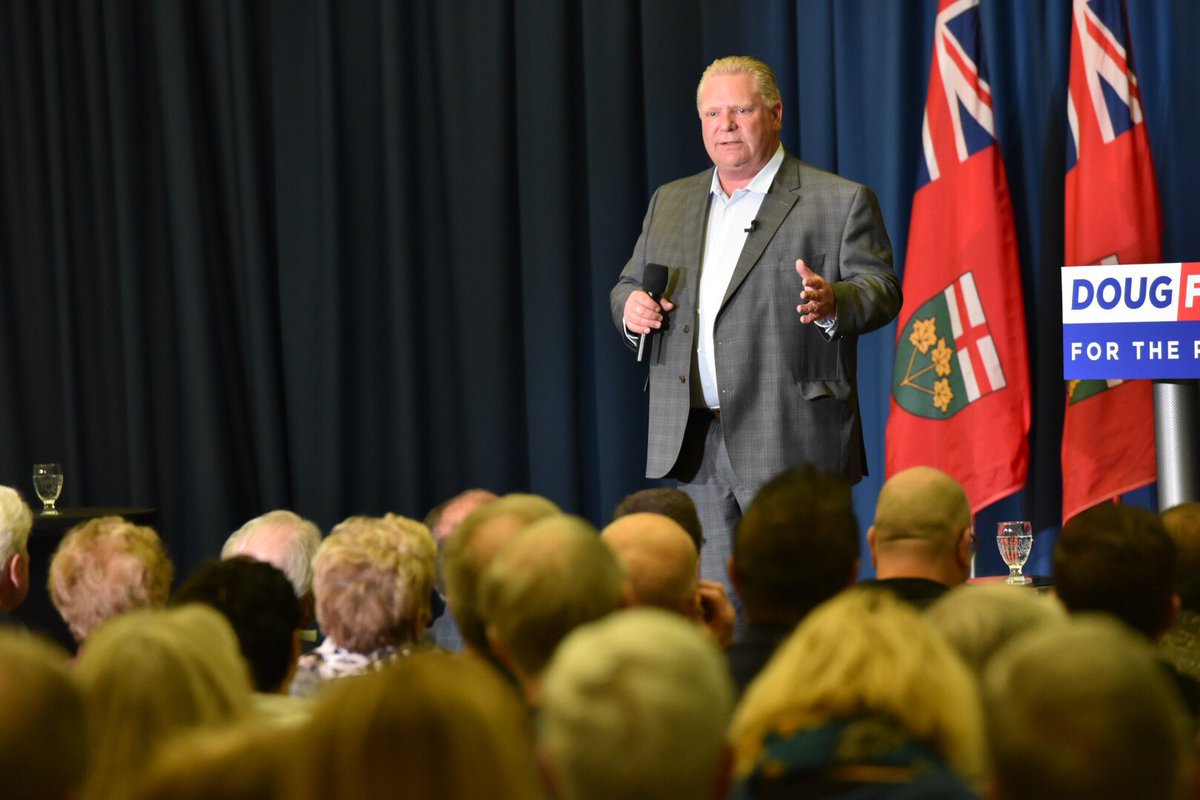Premier Doug Ford and his Progressive Conservative government hold a nine per cent lead in vote intention over a left divided by the Liberals and New Democrats, according to a new poll released by Abacus Data on Thursday.
The survey was carried out with 1,210 Ontario residents over 18 from Jan. 7 to 12 with a -/+ 2.9 per cent margin of error, 19 times out of 20.
With a provincial election being held on June 2, the PCs aim to hold on to their majority while the Liberals look to regain after their seat numbers were demolished in the 2018 Ontario vote.
As for Ford’s chances, Ryerson University professor John Shields said a voter split could help the premier stay in power.
“They’re splitting that oppositional vote and that’s giving an easier path for the Progressive Conservatives,” Shields said.
Fifty per cent of those surveyed by Abacus said they definitely wanted a change of government.
If Ford loses the election, Shields explained it will come down to who will prevail in the fight on the left side of the political spectrum between the New Democrats and the Liberals.
Voters dissatisfied with the incumbent government may coalesce around one of the opposition parties and make it a tighter race, Shields said.
Shields pointed to the popularity of the party leaders as a critical factor.
The poll found that 82 per cent of recipients were well aware of Ford. Opposition leader Andrea Horwath scored a 60 per cent when it came to people knowing about her.
New Ontario Liberals leader Steven Del Duca lagged behind at 38 per cent.
“He’s suffering somewhat from a lack of recognition,” Shields said. But awareness around the opposition leaders, he expects, will grow when election campaigning starts to heat up.
It will depend on how Horwath and Del Duca will perform when they’re in the spotlight and who can win the vote on the left, and even some of the middle.
Green party Leader Mike Schreiner said the door was still open for voter opinions to change.
“A lot can happen in just a few days in politics,” the Guelph MPP said in response to a question from Humber News during a press conference.
“We’re at a stage now where every party including the Ontario greens are putting forward their vision, their values, their policy priorities, and the people of Ontario will ultimately decide what kind of future they want.”
There were over 900,000 post-secondary students in Ontario in 2020, according to Statistics Canada. This number is big enough to make a difference in a provincial election, Associate Professor Andrea Perrella said.
“Students are among the least likely to vote, but they’re sizable enough to make a difference,” Perrella told Humber News.
“It’s a demographic whose voice can be loud, but it’s unfortunately a demographic that doesn’t necessarily exercise that voice.”
At one point it could have been Ford’s election to lose.
Fluctuations in the polls since the start of the global health crisis in March 2020 have revealed constantly shifting opinions amid COVID-19 restrictions and the rise of the Omicron variant.
“The situation that Ford faces this year is definitely different than 2018, he’s not running against an unpopular premier,” Perrella said.
“This time, he’s the unpopular premier.”

